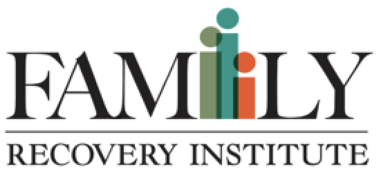NARRATIVE:
In this workshop, we will be examining how we can integrate anti-racism principles into our work with clients in order to create a therapeutic space that acknowledges the ways that systemic oppression and racism impact how we do our clinical work. Somatics will be utilized as a tool to help build practitioners’ capacity to examine their own cultural frame and explore how that frame impacts transference and countertransference in clinical work. We will reflect upon the importance of understanding white racial socialization and the importance of bringing the conceptualization of race into work with all of our clients. We will explore microaggressions and the ways that they can show up in the therapy room, as well as explore ways to take accountability and build capacity to have difficult conversations about race in our clinical work. We will utilize a variety of methodologies to dive into these topics, including lecture, multimedia, small group activities, clinical vignettes and role plays.
2. SOURCE MATERIAL:
Comas-Díaz, L., & Rivera, E. T. (Eds.). (2020). Liberation Psychology: Theory, Method,
Practice, and Social Justice. American Psychological Association. http://www.jstor.org/stable/j.ctv1chs1sn
Menakem, R. (2017). My Grandmother’s Hands. Central Recovery Press.
Porges, S. W. (2011). The polyvagal theory: Neurophysiological foundations of emotions, attachment, communication, and self-regulation. New York: W.W. Norton.
Okun, Tema. (2021). White Supremacy Culture- Still Here. https://www.whitesupremacyculture.info/
Salter, P. & Adams, G. (2013). Toward a critical race psychology. Social & Personality Psychology Compass, 7(11), pp. 781-793.
Sue, D. W., Capodilupo, C. M., Torino, G. C., Bucceri, J. M., Holder, A. M. B., Nadal, K. L., & Esquilin, M. (2007). Racial microaggressions in everyday life: Implications for clinical practice. American Psychologist, 62(4), 271–286. https://doi.org/10.1037/0003-066X.62.4.271
Winerman, L. (2016, October). Left out. Monitor on Psychology, 47(9). http://www.apa.org/monitor/2016/10/left-out
3. LEARNING OBJECTIVES:
Upon completion of this workshop, participants should be able to:
- Define systems of oppression, white supremacy, antiracism, and liberation psychology
- Understand how systems and societal structures impact issues that show up in the therapy room
- Describe the importance of examining white racial socialization in clinical work
- Identify their own cultural frame and describe how that impacts their experience with clients
- Be able to utilize somatic practices and tools to better understand their own reactions to engaging in conversations about race
- Understand and describe microaggressions that can occur in therapy
- Identify strategies to have effective conversations about race in the therapy room
4. COURSE OUTLINE – 4 HOURS:
9:00 – 10:15 am
Rachel Wilson will provide context through a lecture format to build a shared understanding of systems of oppression and provide an overview of the framework of liberation psychology. She will utilize clinical vignettes to explore how a systems framework can be helpful in clinical conceptualization and building a better understanding of the connection between individual and collective issues.
10:15 – 11:00 am
Rachel will provide an overview of how culture and racial socialization impact our clinical work. We will explore the importance of understanding our own socialization in the context of transference and countertransference. The group will explore the Characteristics of White Supremacy Culture. We will use small group activities to explore the connection between these characteristics and mental health issues.
11:00 – 11:15 am
Break
11:15 – 12:00 pm
Rachel will lead the group in somatic practices and provide context for the importance of understanding the somatic manifestations of systems of oppression. We use multimedia experiences to explore the somatic response to different racial conversations in order to build self-awareness of our own personal reactions to topics of race.
12:00 – 1:00 pm
Finally, we will explore microaggressions and how they show up in the therapy room. We will explore tools to manage defensive emotional reactions and take accountability for our actions and words during difficult conversations about race. We will utilize role playing to practice having emotionally charged conversations about race in the context of therapy.
5. CRITERION 1.1 TO 1.3:
This program meets Criterion 1.1.
6. CONTENT CURRICULUM:
1) Describe how your program content will build upon the foundation of a completed doctoral program in psychology.
This workshop will expand the participants’ personal experiences and expand knowledge about how to bring in the ways that societal issues arise in the therapeutic context. It will also add to a personal understanding of their own cultural and racial socialization as it relates to their therapeutic work.
2) Describe how your content is specifically relevant to psychological practice, education, or science.
The knowledge the participants gain will enhance their clinical work by teaching clinicians how to understand the ways that our culture, societal conditioning, and systems of oppression show up in clinical work, as well as provide tools to be able to navigate the work in a culturally responsive manner.
3) Describe your target audience and the instructional level of your content (introductory, intermediate, or advanced).
The target audience is everyone who is working clinically in the mental health field. The concepts will be explained simply enough so that they will be accessible to participants who are beginners in the field, as well as those with advanced knowledge.
4) Describe the accuracy, utility, and the empirical basis of the materials that you will present. What are the limitations of the content being taught and their most common risks?
The content is based on materials and articles that come from multiple disciplines from both psychological texts to social justice organizing publications. There is limited information available in psychological services to fully address the issues of oppression in clinical practice, so there is limited peer-reviewed literature on this topic. There is a risk of participants being emotionally triggered by the content due to the personal nature of the topics covered and potential conflict within the group as these issues are discussed.
5) Describe how your content reflects the appreciation of a diverse populations and how you intend to acknowledge and respect of the richness of cultural, individual and role differences.
The clinical approach presented can be applied to all clients, independent of cultural and role differences. The cases selected for discussion will reflect diverse populations and the use of multimedia and resources from diverse thinkers. Authors selected for discussion in the theoretical part of this course are from diverse backgrounds and other sources of information will be offered to dive deeper into BIPOC thinkers on the subjects of anti-racism and liberation psychology.
Bio
Rachel (she/her) is a psychotherapist, yoga therapist, and facilitator committed to supporting people who are impacted by personal, systemic and vicarious trauma to re-embody and reconnect. She is passionate about providing a sanctuary for people to tell their stories, to settle their nervous systems, and to decolonize their minds in order to support individual and collective healing. She currently runs a private practice and has worked many years in community mental health with people from all different backgrounds. She integrates ancient wisdom and modern science into her practice to help people find balance in their mind, body, and spirit.
COST:
CIP Members:
$75 early registration 10 business days prior to class; $90 after
Non-Members:
$100 early registration up to 10 business days prior to class, $115 after
CEs: 4 CEs for LMFTs, LCSWs, and Psychologists. Participants must attend the full live session and complete the evaluation at the end to receive a CE completion certificate.
Community Institute for Psychotherapy is approved by the American Psychological Association to sponsor continuing education for psychologists. Community Institute for Psychotherapy maintains responsibility for this program and its content.
Cancellation must be received in writing by email: Full refund if canceled 48 hours prior to the event; $25 cancellation fee if canceled with less than 48 hours’ notice.
Accommodations will be made wherever possible to those with disabilities. Please let us know of any disabilities upon registration, to ensure proper accommodations are put in place prior to workshop/training.
Grievance Procedure: CIP will respond to complaints in a reasonable, ethical and timely manner, when submitted by program attendees in writing to the Chair of CIP’s Professional Development Committee.
Anti-Discrimination Policy: CIP shall not discriminate against any individual or group with respect to any service, program or activity based on gender, race, creed, national origin, sexual orientation, religion, age or other prohibited basis. CIP does not require attendees to adhere to any particular religion or creed in order to participate in training. CIP will not promote or advocate for a single modality of treatment that is discriminatory or likely to harm clients based on current accepted standards or practice.
*There is no conflict of interest or commercial support related to this CE program.











